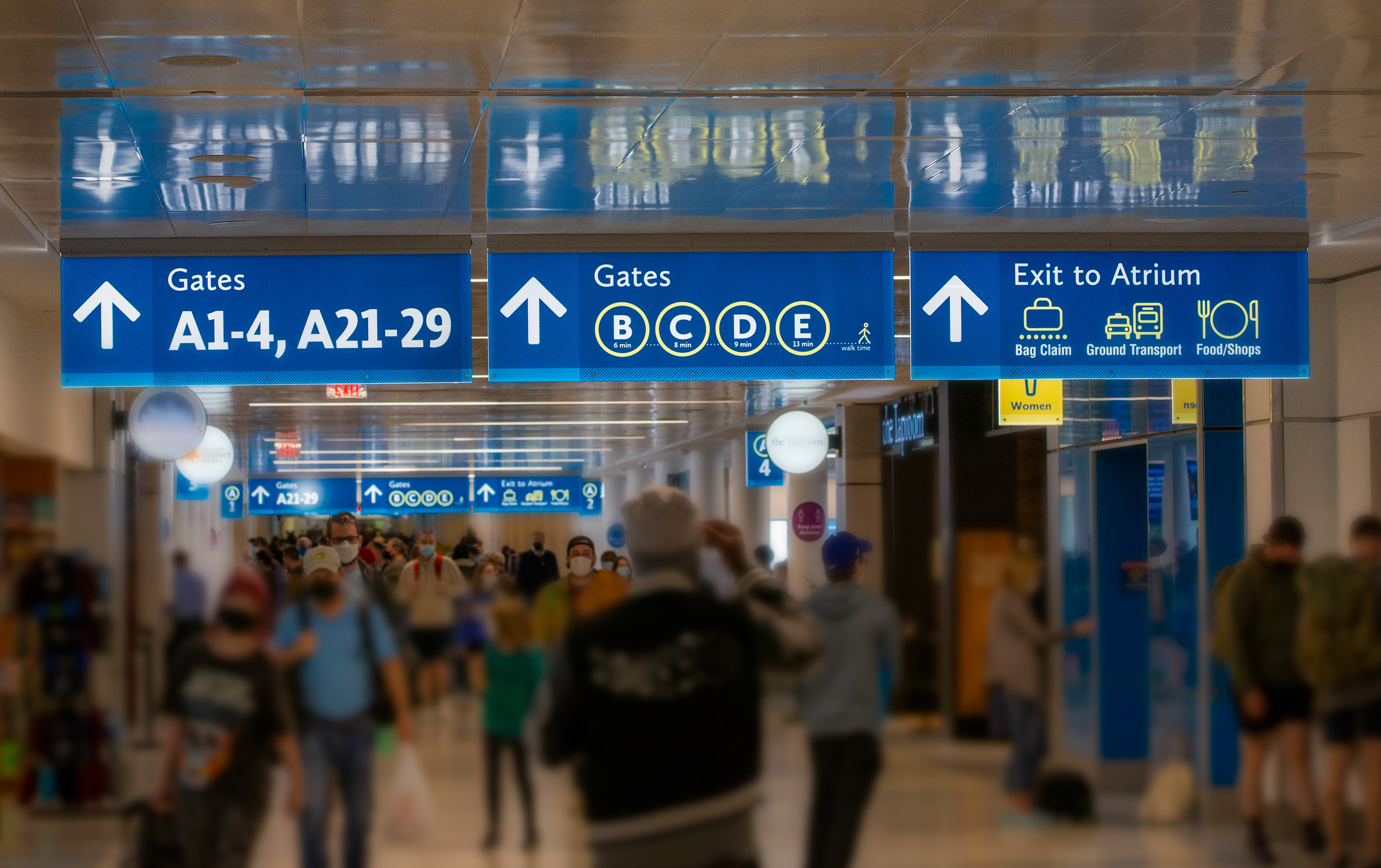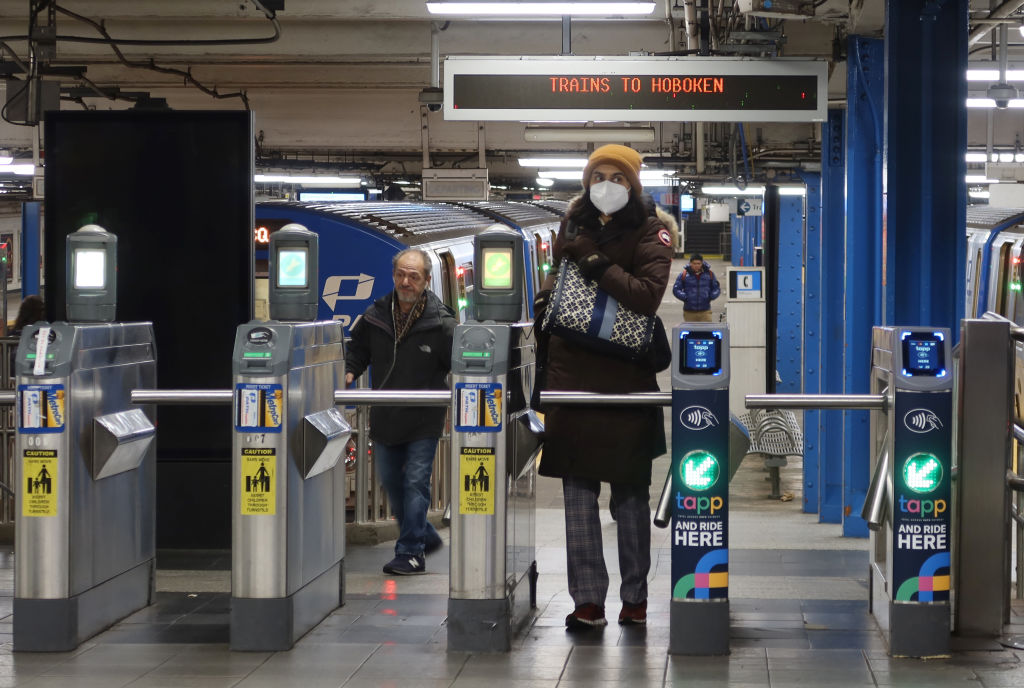
If youve traveled abroad just lately, you may need been greeted upon your return by folks in a handful of airport terminals within the U.S. recruiting passengers to get examined for the COVID-19 virus. Its been a surprisingly productive strategy to preserve monitor of how a lot COVID-19 may be getting into the nation, through vacationers, in addition to which variants they’re bringing in.
Simply in time for the busy vacation journey season, the applications operators, the Facilities for Illness Management and Prevention (CDC), Concentric by Ginkgo Bioworks (a Boston-based biotech agency), and XpresCheck, which recruits and checks the passengers, are increasing the screening to incorporate viruses aside from SARS-CoV-2. Since October, this system has been screening a subset of samples from vacationers for influenza and RSV. Finally, this system will part in 30 extra pathogens.
Because the program launched in 2021, the Traveler-based Genomic Surveillance (TGS) program has offered an important window into how the COVID-19 virus is circulating, particularly since extra persons are counting on at-home checks that dont require them to report outcomes. About 6,000 passengers arriving in seven main worldwide U.S. airports are examined every week on a voluntary foundation. In addition they present fundamental, non-identifying details about the place their flight originated, and different nations included of their itinerary; and reply questions on their vaccination standing, age, and whether or not they have been in shut contact with anybody who examined constructive for COVID-19 just lately. Individuals shall be requested comparable questions on flu and RSV.
Extra From TIME
To date, this system has enrolled greater than 360,000 passengers and sequenced greater than 14,000 samples and added these information to public genetic databases to assist public well being officers higher perceive how and the place the virus is circulating. TGS detected the primary case of the variant BA.2.86 coming into the U.S. in August, from a traveler arriving at Washington, D.C.s Dulles airport from Japan, even earlier than that nation had detected any instances. It was additionally the primary time that variant had been discovered exterior of Denmark and Israel, the place it was first reported.
Weve had fairly a little bit of success with the platform, says. Dr. Cindy Friedman, chief of the Vacationers Well being Department at CDC. Vacationers may also help us to fill in gaps in our world surveillance as a result of they get and unfold germs as they journey. They provide us an early have a look at what’s coming into the nation, and what’s going on globally. As a result of not all nations have sturdy infectious illness testing and surveillance applications, TGS is offering worthwhile info not nearly whats taking place within the U.S. however world wide as nicely. Weren’t ready for somebody to get sick after which go see a well being care supplier or go to the emergency room, says Friedman. We are attempting to get the information one step earlier.
Friedman says she and her staff are additionally not relying solely on the altruism of passengers to undergo nasal swabs as they get off lengthy transcontinental flights. Since launching in 2021, this system additionally collects and research samples of wastewater from planes, and wastewater from the frequent drain into which planes discard their waste. Such assortment can present a extra environment friendly strategy to monitor pathogens coming into the nation, says Friedman, since that one pattern is consultant of 200 to 300 folks on that aircraft. Friedman says her staff can be investigating taking air samples from airports, which may push our information concerning the world unfold of pathogens even additional.
Within the newest iteration of this system, passengers at 4 airportsJohn F. Kennedy in New York, San Francisco Worldwide, Logan in Boston, and Dullesvolunteer to swab their noses and Ginkgo genetically analyzes any constructive checks at its labs for the presence of SARS-CoV-2, influenza, and RSV. Scientists have simply begun screening wastewater for these extra viruses as nicely. If these sequences present indicators of mutations or different modifications, they’re despatched to CDC labs in Atlanta for deeper evaluation. As with the unique COVID-19 testing, all the genetic information are uploaded onto public genetic databases so researchers can examine them.
Learn extra: Theres a Scarcity of RSV Therapies. Heres What Docs Suggest
In coming years, this system will add testing for dozens of different viruses and micro organism, in addition to for mutations that sign that viruses or micro organism have develop into proof against current remedies. Finally, Friedman says her staff is hoping take air samples from airports to supply extra information on pathogens, and to bolster the applications potential to know the place on the earth pathogens are coming from, and whether or not the strains getting into the nation pose any risk to public well being as a result of current remedies wont be capable of management them.
One group of such pathogens that may finally be screened embody the parainfluenzas, which may contribute to croup or pneumonia, and might be harmful for younger infants. There are not any public genomes for a few of these respiratory pathogensnone for parainfluenza 3, for instance, and none for human metapneumovirusso we shall be getting the primary sequences that we’re in a position to take a look at extra carefully, says Casandra Philipson, a computational biologist at Concentric. Have been enthusiastic about establishing a worldwide baseline dataset for these viruses. The extra we make public, the extra we will contribute to higher common information about these pathogens.



